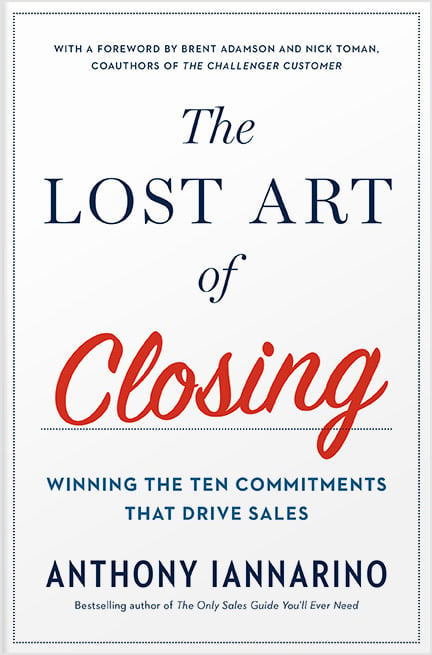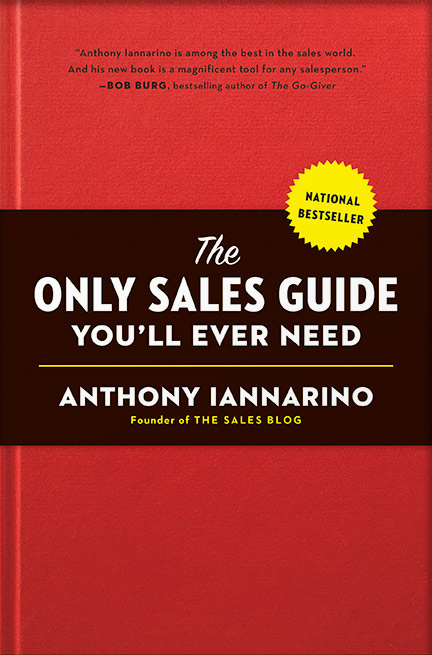The Gist:
- A lot of sales advice is often delivered as if it were a universal truth.
- Much of this advice presents generalizations as facts, without the context necessary for the advice to be useful.
- Improving your sales approach requires recognizing the context that would make the advice useful.
When you listen to sales experts talk about sales, you’ll hear all kinds of advice that sounds solid until you dig into its implications. They often elevate partial truths and contextual tactics to veritable gospel, then they congratulate themselves on occupying the moral high ground when it comes to sales. Words have power, however, and it’s important to recognize that many statements about sales that are correct in one context may be incorrect in another.


Closing in on Closing
Recently, I heard a number of sales experts suggest that one should “never be closing.” Instead, they pushed tropes like “always be helping,” because “no one wants to be closed.” There’s a good idea here worth understanding, but it was lost in the flurry of platitudes. Any developing salesperson listening in might easily conclude that they should not try to close deals, instead being helpful no matter the results.
First and foremost, a professional salesperson is supposed to close deals. Claiming they shouldn’t is devastatingly bad advice. The point of the advice, I suspect, was not to close a deal before you do the work necessary for the client to agree to buy and execute your solution. But “don’t try to close a deal prematurely” isn’t nearly as pithy.
Likewise, while you should of course help all your prospective clients, the exhortation to “always be helping” is not good advice if it means that you don’t “close” your prospective client on the commitment to the next conversation. Those commitments, along with the conversations they lead to, give clients what they need to solve their problem, address their challenge or opportunity, and better understand what they need to do to improve their results. In The Lost Art of Closing, I called this skill commitment-gaining, knowing that the word “closing” not only carries a negative connotation but keeps some salespeople from helping their clients—and loses deals because they weren’t helpful enough to guide their clients through the conversations.


Pitch Perfect Pitch
The advice that one should “never pitch” the client is also a generalization—a valuable fiction. The experts will tell you no one wants to be pitched, something that isn’t true. Again, the words used are in conflict with reality because generalizations do away with context. The context of what and when you are pitching matters a great deal.
A more accurate directive might look like this: “Pitch your client only after you have done the discovery work necessary for both you and your contact to be certain that your solution is perfect and will produce the results the client needs. Even then, only pitch when they are in a position to agree to a verbal commitment.” But that won’t fit on a LinkedIn meme, so let’s go with “don’t pitch too early in the sales conversation.”
At some point in the sales conversation, every salesperson has to present their solution to some set of stakeholders, who are going to decide whether to buy from them. Treating “never pitch” like it’s carved in stone will actually harm salespeople who are looking for help, especially if they take it out of context.


People Don’t Like to Be Sold Badly
The idea that “people don’t like to be sold” is mostly true, but like the other two claims, there is no context to allow a developing salesperson to understand what they should do when sitting in front of a prospective client. The general idea is that we humans generally don’t like selfish people with self-serving approaches. But that’s a problem with sales behavior, not with selling itself. In fact, most of the bad behaviors that gave rise to the idea that people don’t like to be sold disappeared via economic natural selection, as they no longer allowed the species (Snakoilus quickbuckicus) to survive and thrive.
Instead, think of it this way: “People don’t like to be sold using legacy sales approaches that create no value for the client and treat a complex sale as if it were nothing more than a transaction.” In other words, “People don’t like to be sold badly.”
Much of the commentary pretends that salespeople are doing something to someone, not for someone, with someone, and for that someone’s benefit. People do, however, seem to enjoy working on their problems and challenges with experts who have the competencies and experiences to help them understand the factors they should consider, who provide them with insights, and who have the acumen to be able to help them make a decision that would be much more difficult to get right without their guidance.
Picking Up the Dropped Context
Whenever you read, listen to, watch, or otherwise consume professional advice, pay careful attention to whether the advice includes the context you need to use it effectively. Recognize that advice offered in one context may be exactly wrong in another one. I’ve spilled a lot of ink, for example, telling you to position yourself as a trusted advisor and a truly consultative salesperson by creating strategic value for your clients. But if your context calls for a transactional sale, please ignore my advice and get on with the sale as efficiently and effectively as possible.
Do Good Work:
- What sales advice do you routinely see that is stated as a fact or offered as a directive?
- Look to recognize the context in which the advice is being given, and when possible ask for the context where it best applies.
- When you’re uncertain about advice, explore when it might be helpful and when it would be harmful to your results.








.jpg?width=768&height=994&name=salescall-planner-ebook-v3-1-cover%20(1).jpg)


